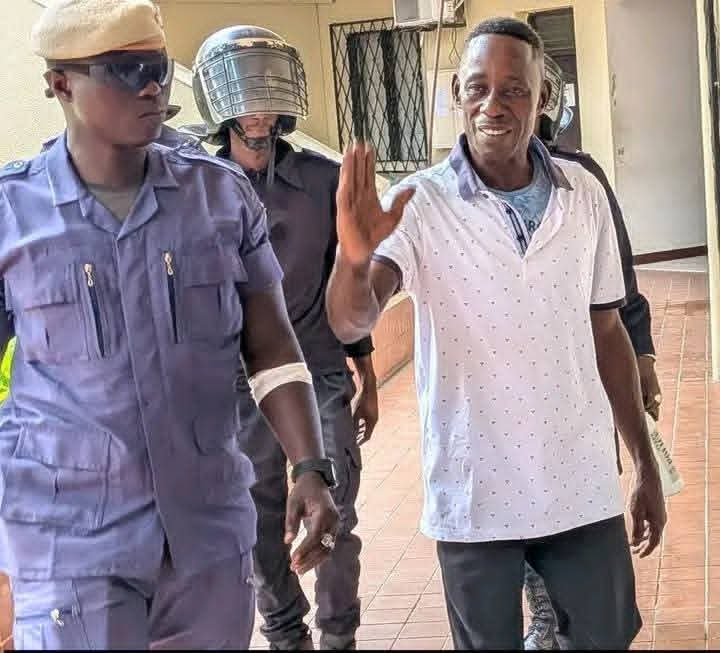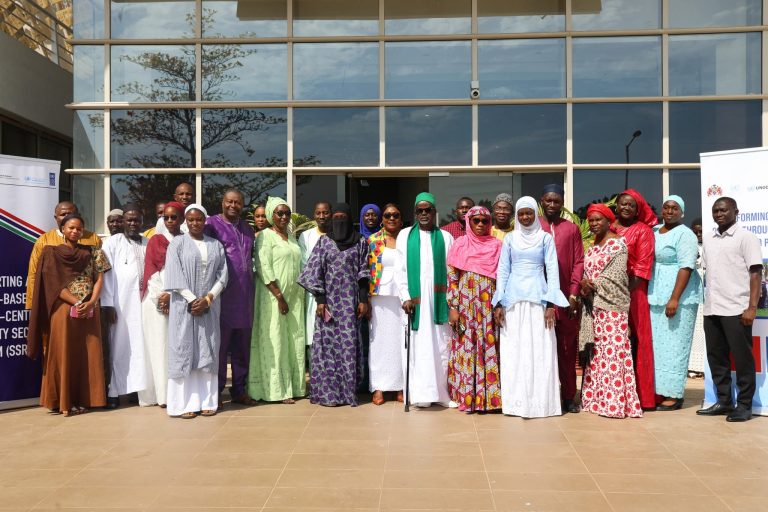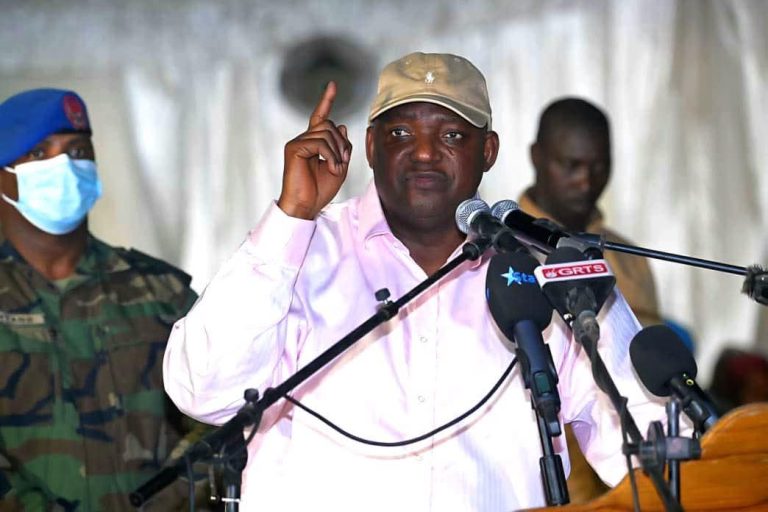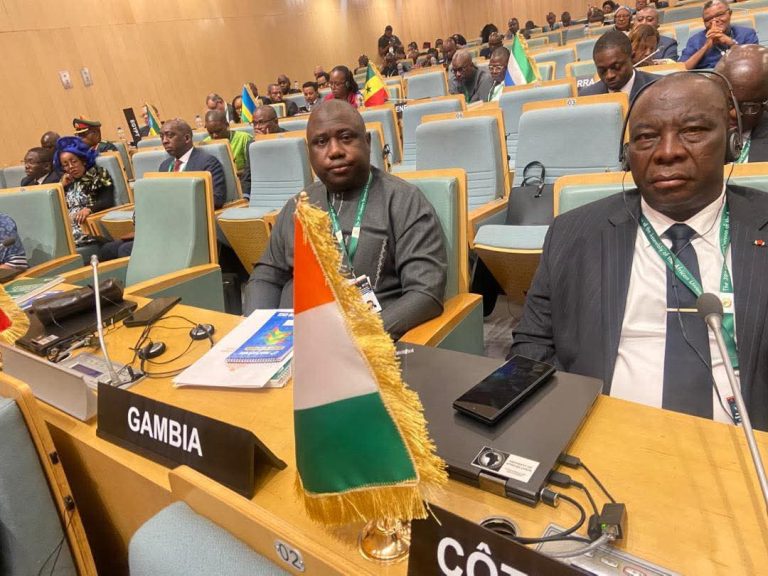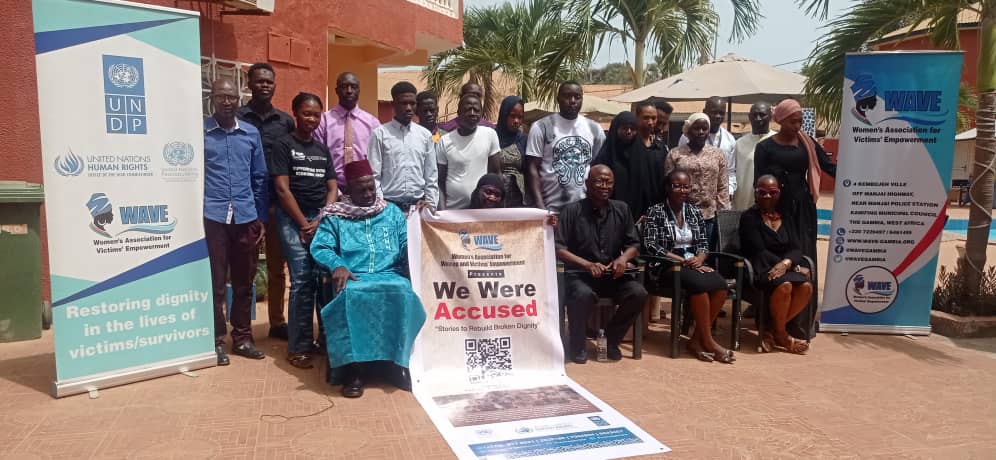
WAVE Gambia has launched a two-day session on yesterday,aimed at engaging communities and stakeholders in the fight against discrimination and stigma faced by victims of witch hunts in The Gambia. The event, held at Baobab Hotel, brought together various participants including security personnel, civil society representatives, community leaders, university and secondary school students, and key stakeholders from communities affected by past witch hunt campaigns.
A powerful video documentary produced by WAVE Gambia was screened during the session. It featured victims recounting their traumatic experiences during the infamous witch hunt operations carried out under the regime of former President Yahya Jammeh. The victims revealed harrowing stories of being forcibly taken from their homes at gunpoint by Jammeh’s so-called “witch hunting team,” placed in vans and transported to unknown locations.
Once in custody, the victims say they were administered an unidentified substance three times a day and forced to sit for long hours under the sun to the point of losing consciousness. They endured extreme physical and psychological abuse, with some being stripped naked and others reporting cases of sexual assault. Many were detained for three to four days, forced to sleep on bare floors, and left with long-lasting trauma.
Speaking at the event, Dr Lamin Jallow, former Executive Secretary of the Truth, Reconciliation and Reparations Commission (TRRC), emphasised the need for accountability. He reaffirmed the TRRC’s recommendation for legal action against those responsible, including Yahya Jammeh and Solo Bojang, who led the witch hunt operations. Dr Jallow also condemned a recent viral video showing an elderly woman being accused of witchcraft and mistreated, stressing, “Never again must we allow a president or a government to accuse innocent people of witchcraft or abuse the human rights and dignity of Gambians.”
Ismaila Sonko, the son of one of the victims, shared a moving testimony about his late father, who was abducted and held for several days during the witch hunts. “Before they took him, my father was mentally and physically fine. They told him he was sick and needed healing, but he insisted he was healthy. Still, they forced him into the van,” he recalled. Ismaila believes his father’s targeting was politically motivated, as he was a known critic of Jammeh’s regime. “Since that day, my father’s health deteriorated until he passed away,” he said in a sombre tone. He praised the Wave Gambia initiative, expressing hope that it will push the government to hold perpetrators accountable.
Police Assistant Superintendent Hassan Baldeh stated the importance of the police attending such engagements to learn from past failures and ensure they never support such human rights violations again. “The session made me emotional,” he said. “I heard stories I never imagined—undressing elders in front of young people, forcing substances on them. It’s painful. As security, we must ensure such things never happen again.”
Mrs Ceesay, Co-Founder of Wave Gambia and Senior Technical Advisor, closed the first day by highlighting the goals of the initiative. She explained that since 2020, Wave Gambia has been working closely with victims of the witch hunts, especially after they participated in the TRRC hearings. “Through this project, we aim to rebuild victims’ social image, reduce stigma, and offer mental and social support to help them recover,” she said. The initiative is supported by the UN Peacebuilding Fund and UNDP.
She noted that the program works with the police, civil society, media, and government institutions such as the Ministry of Justice and the Post-TRRC Unit. The National Council for Civic Education is also involved in raising awareness across communities.
The second and final day of the session will be held on May 29, continuing the conversation on healing, accountability, and reconciliation.

